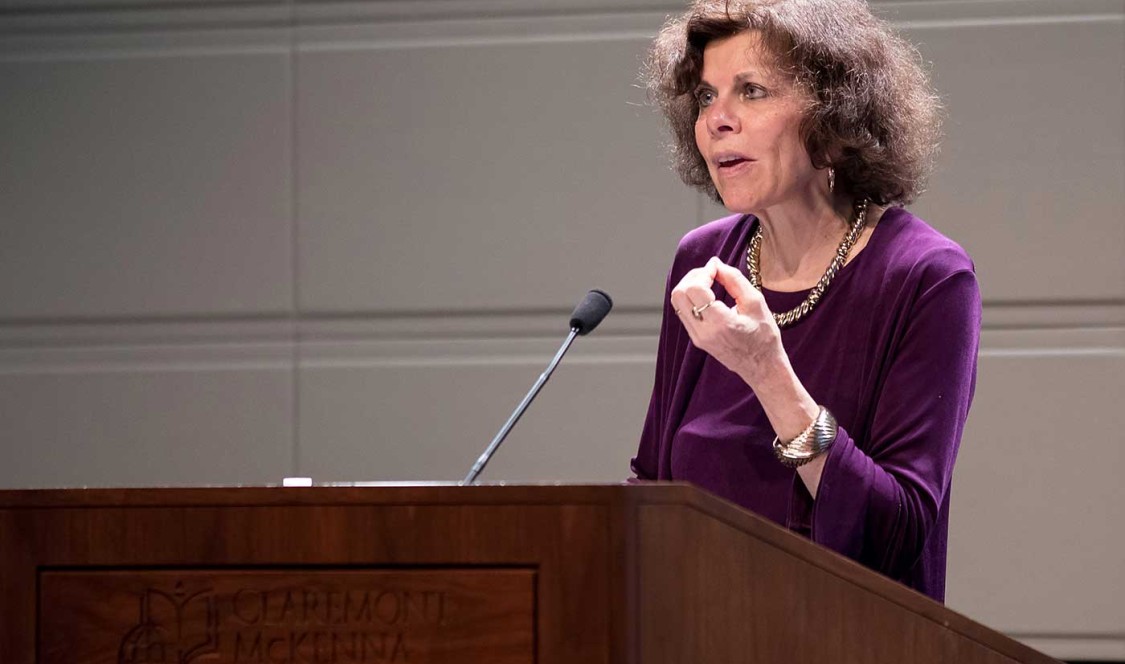“Too often,” Nadine Strossen told her audience at the Marian Miner Cook Athenaeum April 5, First Amendment advocates assert that “hate speech is absolutely protected,” adding that “I’ve been a little bit guilty of that myself.”
In fact, she said, “the brilliance of U.S. law” is that “it is much more nuanced. It does draw a very sensible line between when hate speech is protected and when hate speech is not protected.”
On many campuses today, she noted, free speech is positioned in opposition to advocacy for diversity and inclusion – a premise she rejects. “We do not have to choose between liberty and equality,” she said.
Strossen’s free speech credentials are deep. She was the first woman president of the American Civil Liberties Union, a position she held from 1991 to 2008, and she is a board member of the Foundation for Individual Rights in Education (FIRE) and the Heterodox Academy.
A professor at New York Law School, Strossen said she opposes laws or codes prohibiting hate speech for two reasons: they are against U.S. Constitutional principles, and they have backfired in countries that have adopted them.
European nations, Canada, and others with hate speech laws, have found that instead of protecting minorities, the laws are applied by governments against those who challenge the status quo. “Whatever we might aspire to ... is not how these laws have operated,” she said.
“The laws are not enforced against face-to-face insults,” she said. “They are used against the expression of ideas, including public policy issues such as immigration and racial justice,” she said.
Furthermore, she said, “there is no correlation” between countries with robust hate speech laws and countries that have made progress in stemming racial discrimination and violence. She cited as examples the prominence of white supremacist movements in Germany and France, which have strict hate speech laws.
Existing U.S. law already is not absolutist on free speech, she said. Speech with a reasonable possibility of inciting imminent violence or targeted harassment is already punishable, she said.
Specifically prohibiting something called “hate speech” is troublesome because there is no legal definition of hate speech, as there is for obscenity. That would make enforcement of any such laws subjective and discretionary – a dangerous power for a government to wield, she said. “I believe there is still enormous structural and systemic racial discrimination ... for that very reason I reject giving government officials power that is irreducibly subjective and discretionary,” she said.
Instead of hate speech laws, Strossen emphasized it is crucial for people to forcefully combat hate speech by speaking – and acting – out themselves.
Free speech advocates in particular, Strossen said, should be duty-bound to oppose hateful speech. “Those of us who oppose censorship have an especially strong moral responsibility to do everything we can through the powers of free speech – through organizing, through education, through counterspeech – to oppose hatred and discrimination.”

